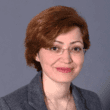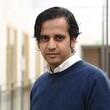
Spatio-Temporal Reasoning
and Learning
Aug. 5, 2024
| Program | CFP | Dates | Organization | Venue |
Opposing the false dilemma of logical reasoning vs machine learning, we argue for a synergy between these two paradigms in order to obtain hybrid AI systems that will be robust, generalizable, and transferable.
Indeed, it is well-known that machine learning only includes statistical information and, therefore, is not inherently able to capture perturbations (interventions or changes in the environment), or perform reasoning and planning. Ideally, (the training of) machine learning models should be tied to assumptions that align with physics and human cognition to allow for these models to be re-used and re-purposed in novel scenarios.
On the other hand, it is also the case that logic in itself can be brittle too, and logic further assumes that the symbols with which it can reason are already given.
It is becoming ever more evident in the literature that modular AI architectures should be prioritized, where the involved knowledge about the world and the reality that we are operating in is decomposed into independent and recomposable pieces, as such an approach should only increase the chances that these systems behave in a causally sound manner.
You may find details about previous editions of this workshop via the links below:
The aim of this workshop is to formalize such a synergy between logical reasoning and machine learning that will be grounded on spatial and temporal knowledge.
We argue that the calculi associated with the spatial and temporal reasoning community, be it qualitative or quantitative, naturally build upon physics and human cognition, and could therefore form a module that would be beneficial towards causal representation learning. A (symbolic) spatio-temporal knowledge base could provide a dependable causal seed upon which machine learning models could generalize, and exploring this direction from various perspectives is the main theme here.
In this workshop, we invite the research community in artificial intelligence to submit works related to the proposed integration of spatial and temporal reasoning with machine learning, revolving around the following topic areas:
The list above is by no means exhaustive, as the aim is to foster the debate around all aspects of the suggested integration.
Application domains being addressed include, but are not limited to:
The submission link is available at easychair.org/conferences/?conf=strl2024.
Papers should be formatted according to the CEUR-ART style formatting guidelines here and submitted as a single PDF file.
We welcome submissions across the full spectrum of theoretical and practical work including research ideas, methods, tools, simulations, applications or demos, practical evaluations, and surveys.
Submissions that are 2 pages long (excluding references and appendices) will be considered for a short presentation, and submissions that are between 4 and 7 pages long (again, excluding references and appendices) will be considered for a regular presentation.
All papers will be peer-reviewed in a single-blind process and assessed based on their novelty, technical quality, potential impact, clarity, and reproducibility (when applicable).
All questions about submissions should be emailed to the organizers via strl2024 at easychair.org.
Be mindful of the following dates:
Note: all deadlines are AoE (Anywhere on Earth).
The accepted papers will appear on the workshop website. We also intend to publish the workshop proceedings with CEUR-WS.org; this option will be discussed with the authors of accepted papers and is subject to the CEUR-WS.org preconditions. We note that, as STRL 2024 is a workshop, not a conference, submission of a revised and/or extended version of a paper to conferences or journals is acceptable from our standpoint.
The back-link to the URL of the workshop proceedings published with CEUR-WS.org is now available at https://ceur-ws.org/Vol-3827/.

|
Prof. Esra Erdem is a Professor with the Faculty of Engineering and Natural Sciences of Sabancı University in Istanbul, Turkey. Her main research interests include mathematical foundations of knowledge representation, automated reasoning, reasoning about actions and change, and answer set programming. |

|
Dr. Renhe Jiang is a Lecturer with the Center for Spatial Information Science of the University of Tokyo in Japan. His main research interests include spatiotemporal data mining, time series forecasting, graph neural networks, and general machine learning. Canceled. |

|
Prof. Tony Cohn is a Professor with the School of Computing of the University of Leeds in UK. His main research interests include artificial Intelligence, foundation models, data & sensor fusion, cognitive vision, spatial representation & reasoning, GIS, and robotics. |
| 9:00 | Opening: Welcome and Agenda |
| 9:10 | Keynote: Some Connections between Qualitative Spatial Reasoning and Machine Learning | pdf |
| Tony Cohn (University of Leeds, UK) |
| 10:10 | Encoding Temporal Statistical-space Priors via Augmented Representation under Data Scarcity | pdf |
|
Insu Choi (Korea Advanced Institute of Science and Technology, Daejeon, Republic of Korea) Woosung Koh (Yonsei University, Seoul, Republic of Korea) Gimin Kang (Korea Advanced Institute of Science and Technology, Daejeon, Republic of Korea) Yuntae Jang (Yonsei University, Seoul, Republic of Korea) Woo Chang Kim (Korea Advanced Institute of Science and Technology, Daejeon, Republic of Korea) |
| 10:30 | Coffee & Tea Break |
| 11:00 | A Spatial Loss Function for Gradient Boosted Trees | pdf |
|
Margot Geerts (KU Leuven, Belgium) Seppe vanden Broucke (Ghent University, Belgium + KU Leuven, Belgium) Jochen De Weerdt (KU Leuven, Belgium) |
| 11:20 | A Spatiotemporal Graph Neural Network with Multi-Granularity for Air Quality Prediction | pdf | video |
|
Haibin Liao (Wuhan Textile University, China) Li Yuan (Wuhan Textile University, China) Mou Wu (Hubei University of Science and Technology, Xianning, China) |
| 11:40 | Improving Accuracy of Anomaly Detection in Spatial-Temporal Population Data through SHAP Values of Reconstruction Errors | pdf |
|
Ryo Koyama (NTT Docomo, Inc., Tokyo, Japan) Tomohiro Mimura (NTT Docomo, Inc., Tokyo, Japan) Shin Ishiguro (NTT Docomo, Inc., Tokyo, Japan) Keisuke Kiritoshi (NTT Communications Corporation, Tokyo, Japan) Takashi Suzuki (NTT Docomo, Inc., Tokyo, Japan) Akira Yamada (NTT Docomo, Inc., Tokyo, Japan) |
| 12:00 | SpoT-Mamba: Learning Long-Range Dependency on Spatio-Temporal Graphs with Selective State Spaces | pdf |
|
Jinhyeok Choi (Korea Advanced Institute of Science and Technology, Daejeon, Republic of Korea) Heehyeon Kim (Korea Advanced Institute of Science and Technology, Daejeon, Republic of Korea) Minhyeong An (Korea Advanced Institute of Science and Technology, Daejeon, Republic of Korea) Joyce Jiyoung Whang (Korea Advanced Institute of Science and Technology, Daejeon, Republic of Korea) |
| 12:20 | GESA: A GEneral Scenario-Agnostic Reinforcement Learning for Traffic Signal Control | pdf |
|
Haoyuan Jiang (Sensetime Research, China) Ziyue Li (University of Cologne, Germany) Zhishuai Li (Sensetime Research, China) Lei Bai (Shanghai AI Lab, China) Hangyu Mao (Sensetime Research, China) Wolfgang Ketter (University of Cologne, Germany) Rui Zhao (Sensetime Research, China) |
| 12:40 | Lunch Break |
| 14:10 | Keynote: Applications of Spatio-Temporal Reasoning in Cognitive Robotics | pdf |
| Esra Erdem (Sabancı University, Istanbul, Turkey) |
| 15:10 | ConvLSTM Neural Network based on Hexagonal Inputs for Spatio-Temporal Forecasting of Traffic Velocities | pdf |
|
Francisco Bahamondes (Andrés Bello National University, Santiago, Chile) Billy Peralta (Andrés Bello National University, Santiago, Chile) Orietta Nicolis (Andrés Bello National University, Santiago, Chile) Andres Bronfman (Andrés Bello National University, Santiago, Chile) Alvaro Soto (Pontifical Catholic University of Chile, Santiago, Chile) |
| 15:30 | Coffee & Tea Break |
| 16:00 | Invited Presentation: Neuro-symbolic Tuning for Multi-hop Reasoning over Spatial Language | pdf |
|
Tanawan Premsri (Michigan State University, USA) Parisa Kordjamshidi (Michigan State University, USA) |
| 16:20 | Invited Presentation: Neurosymbolic Visual Commonsense: On Integrated Reasoning and Learning about Space and Motion in Embodied Multimodal Interaction | pdf |
| Mehul Bhatt (Örebro University, Sweden) |
| 16:40 | Joint Discussion and Final Remarks |
| 17:30 | Closing |

|
Prof. Parisa Kordjamshidi is an Assistant Professor with the Department of Computer Science and Engineering of Michigan State University, US. Her main research interests are artificial intelligence, machine learning, natural language processing, and declarative learning based programming (DeLBP). Parisa is directing the research lab on Heterogeneous Learning and Reasoning. |

|
Dr. Jae Hee Lee is a Postdoctoral Research Associate with the Knowledge Technology Group, University of Hamburg, Germany. His research aims to develop deep learning models for language understanding by leveraging multimodal information (e.g., vision, proprioception) with a particular focus on robustness and explainability. |

|
Prof. Mehul Bhatt is a Professor of Computer Science with the School of Science and Technology at Örebro University, Sweden. His basic research focuses on formal, cognitive, and computational foundations for AI technologies with a principal emphasis on knowledge representation, semantics, integration of commonsense reasoning & learning, explainability, and spatial representation and reasoning. Mehul steers CoDesign Lab, and directs the research and consulting group DesignSpace. |

|
Prof. Michael Sioutis is a Junior Professor of Hybrid AI with the Laboratory of Computer Science, Robotics, and Microelectronics of Montpellier and the Faculty of Sciences of the University of Montpellier, France. His general interests lie in artificial intelligence, knowledge representation and reasoning, data mining, logic programming, and semantic web. |

|
Dr. Zhiguo Long is a Lecturer with the School of Computing and Artificial Intelligence of the Southwest Jiaotong University, Chengdu, China. His research interests include fundamental and practical techniques in knowledge representation and reasoning, especially in qualitative spatial and temporal reasoning, and topological data analysis. |
The workshop will take place in Jeju island, South Korea, co-located with IJCAI 2024; specifically, the worksop will take place at 3F-Room 303A at the International Convention Center Jeju (ICC Jeju) in Jeju Island, South Korea.